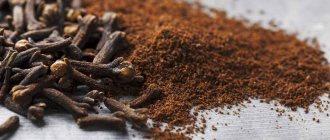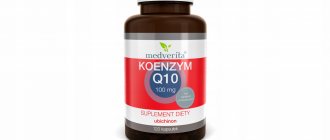August 1, 2011
Selenium is a powerful antioxidant that stimulates the thyroid gland, improves immunity and human reproductive functions.
Selenium got its name from Earth's moon, the moon, almost two centuries ago. Using its compounds, modern lasers, gamma radiation sources and complex devices are created.
Selenium itself is a strong poison, but the human body still needs it in microscopic doses - as an antioxidant and an important factor in the normal functioning of the immune and hormonal systems.
Useful properties of selenium
There is not a single organ in the human body where selenium is not present. This element plays an important role in strengthening protective functions, as it is endowed with antioxidant and anti-inflammatory properties. Scientists note that the benefits of the chemical are based on the following positive properties: Activates the functioning of the circulatory system.
- Strengthens blood vessels, reduces the risk of plaque formation, protects the heart from damage;
- Normalizes the activity of the immune system.
- Able to prevent viral mutation;
- Responsible for the functioning of the thyroid gland.
- The product is involved in the regeneration of muscle cells and skin;
- Improves the functioning of the gastrointestinal tract;
- Neutralizes the effect of free radicals, reducing the risk of developing malignant tumors.
- Participates in the restoration of skin, hair and nails
An optimal balance of selenium in the body also indicates strong immunity. This element is also an excellent antioxidant, so it protects cells from faster aging and at the same time has the ability to prevent neoplastic changes.
Selenium is also responsible for the proper functioning of the nervous system. This helps not only maintain a good mood but also the ability to concentrate. It is believed to be able to prevent certain neurodegenerative diseases such as Parkinson's disease or Alzheimer's disease.
The role of selenium in the human body
- Antioxidant protection
- is part of the following enzymes:
- Glutathione peroxidase - consists of 4 subunits, each of which contains a selenium atom in the form of selenocysteine. The task of this enzyme is to catalyze the synthesis of glutathione, the main protector of the body (especially fatty acids, red blood cells, hemoglobin, membranes, and DNA) from the destructive effects of peroxides.
- Glutathione reductase - catalyzes the conversion of the oxidized form of glutathione into the reduced form and thereby prevents the development of oxidative stress.
- Thioredoxin reductase - reduces thioredoxin, a low molecular weight protein that can also resist oxidative stress. Mice with increased expression showed greater resistance to inflammatory processes, as well as a longer lifespan.
- Inhibits apoptosis
(programmed cell death) through complex stepwise biochemical reactions.
- Participates in the conversion of thyroxine (T4),
thyroid hormone, into the metabolically more active
triiodothyronine (T3)
, part of deiodinase.Changes in the functioning of the thyroid gland as a result of insufficient selenium intake can lead to worsening mood, behavioral and cognitive dysfunction.
- Slows down the aging process.
- Reduces symptoms that occur during menopause.
- Shows synergism and enhances the effect of vitamin E
— their combination showed more effective results in protecting mitochondria, cytochromes, and microsomal membranes.
- Selenium is also used in HIV therapy
— taking 20 mcg of the drug for 9 months was associated with suppression of the virulence of the virus, as well as an increase in the number of T-helper cells (remember, they are the ones targeted by the barrel of the gun in this disease).
- Promotes normal course of hematopoietic processes
(controls oxidative stress during erythropoiesis, and also, as part of selenoproteins, affects several stages of erythroid development).
Study
: Selenium Status and Hemolysis in Sickle Cell Disease Patients
Study
: Supplementation of Micronutrient Selenium in Metabolic Diseases: Its Role as an Antioxidant
Deficiency Symptoms
deficiency is often associated with problems with thyroid function. Moreover, they sometimes lead to heart failure, blood vessel disease and loss of immunity. A lack of selenium in the body can also lead to mental problems, as it often interferes with the functioning of certain neurotransmitters. This can lead to both depression and anxiety disorders.
Signs of selenium deficiency in the body are very similar to symptoms of deficiency of many microelements. When the level of this mineral is low, the following conditions develop:
- chronic fatigue;
- tendency to frequent colds;
- decreased vision;
- skin rashes;
- pain in muscle tissue;
- elevated serum cholesterol;
- deterioration of the function of the digestive organs.
In order to establish a microelement deficiency, it is necessary to donate blood to the laboratory. To prevent a deficiency of this substance and prevent the development of unpleasant symptoms, it is recommended to take courses of a complex with vitamins and minerals, which contains selenium.
Selenium deficiency
Selenium deficiency occurs for various reasons. Most often this is due to unfavorable environmental conditions, heavy physical activity, and abuse of processed foods and sweets.
Deviations from standard indicators in a downward direction have a negative impact on a person’s overall well-being. There is a feeling of constant fatigue, and performance decreases. If the amount of this element is insufficient, the absorption of vitamin E worsens, which increases the risk of developing various diseases. The following signs indicate selenium deficiency:
- Muscle weakness.
- Constant fatigue.
- Hair loss.
- Decreased visual acuity.
- Weight gain.
- Cramps.
In severe cases, the immune system is weakened, which leads to an increased risk of developing serious diseases. Long-term selenium deficiency can cause hormonal disorders, infertility in men and women, and accelerate the aging process.
List of diseases caused by deficiency
With low levels of selenium in the body, metabolic processes begin to slow down. As a result, excess weight appears and obesity develops. Similar changes occur more often among the fair sex. With prolonged selenium fasting, the risk of developing the following diseases increases:
- heart attack;
- diabetes mellitus;
- sclerosis;
- bronchial asthma;
- cardiac ischemia;
- thyroid dysfunction;
- arthritis.
With a decrease in selenium content, the likelihood of intrauterine abnormalities and premature birth increases. It has also been noted that people with low levels of the mineral age faster, their appearance deteriorates, and skin elasticity decreases.
It is important to take preparations with selenium as part of complex therapy for a malignant disease. It helps prevent further growth of pathological tissues and restores metabolic processes. When taking the mineral, recovery after completing a course of chemotherapy is accelerated.
The trace element promotes the removal of toxic substances from tissues, accelerates the regeneration of mucous organs, and normalizes the pH level in the digestive system.
Food Sources of Selenium
Plants accumulate selenium in the form of inorganic compounds (in particular selenates), which are then converted into organic compounds (selenocysteine, which predominates in animal foods, and selenomethionine).
Selenium is most easily absorbed in organic form, as well as in the presence of vitamins A, D, E and low molecular weight proteins containing methionine.
Targeted nutrition tips
that will increase your energy level by 10 out of 10
From TOP nutritionists of the MIIN
Get tips
The following foods are rich in selenium
:
- Cereals - the selenium content in them, it is worth noting, largely depends on the concentration of this mineral in the soil (and most European countries are precisely at risk).
- Meat.
- Dairy products.
- Milk - baby modified milk contains four times less selenium than breast milk (3.5 mcg enters the child's body daily compared to 13.3 mcg of this element in mother's milk).
- Nuts.
- Fish - It is noted that marine species caught in the northwest Atlantic Ocean contain more selenium (168-825 ng/g) compared to freshwater species (146-576 ng/g).
- Eggs - depending on the chickens' diet. Selenium in the yolk is bound to phosphoavidin.
- Bread.
- Asparagus.
- Mushrooms.
- Garlic.
Small amounts of inorganic selenium (selenite and sodium selenate - the latter, by the way, has excellent bioavailability, and is directly used for the synthesis of certain selenoproteins) have been found in drinking water.
Low protein content in foods is associated with a low concentration of selenium in them.
Cereals provide about 50% of your daily selenium intake, while meat, poultry and fish provide about 35%. Fresh and thermally unprocessed vegetables provide 11% of this microelement in a proper, balanced diet, fruits - less than 10%.
Heavy metals and sulfur reduce the bioavailability of this element, as does heat treatment (due to the formation of volatile compounds).
The use of supplements containing organic selenium of yeast origin, in case of its deficiency, has multidirectional beneficial effects on the health and functioning of the human body (in particular, on the functioning of the thyroid gland and the cardiovascular system). This is also considered the safest form.
It is recommended to add fermented foods to the diet, which contain lactic acid bacteria, as well as yeast, which accumulate significant amounts of selenium. Another example is sourdough baking using microorganism cultures enriched with selenium.
With malabsorption syndrome, radiation and chemotherapy, and metabolic disorders, the risks of its deficiency are especially increased.
Interesting fact
: Recently, not only nutrition hacking specialists, but also manufacturing enterprises and large farms have begun to pay attention to this microelement. It was noted that selenium is necessary for the normal reproductive function of chickens, for the formation of high-quality eggs (in particular, the optimal ratio of white and yolks, as well as for shell hardness), as well as for protecting the body from free radicals.
Study
: Selenium–Fascinating Microelement, Properties and Sources in Food
Studies indicate that adding selenium to animal feed effectively protects against increases in blood pressure due to regular exposure to heavy metals. In particular, necrotic kidney damage under the influence of mercury decreased with increased selenium intake.
The benefits of selenium for women
The benefits of this microelement are also invaluable in the treatment of cardiovascular diseases, as well as thyroid diseases. Selenium is also good for the female reproductive system: it effectively fights diseases of the genital area. During pregnancy , when a woman has a very unstable emotional background, selenium will normalize the condition and provide the developing baby with all the necessary microelements and minerals.
The microelement is responsible for removing toxins , heavy metals, and poisons from the body. The useful substance promotes the regeneration of mucous membranes inside the body, restores the acid-base balance in the gastrointestinal tract, and improves intestinal microflora.
The powerful antioxidant selenium allows you to maintain skin elasticity longer; this effect is especially effective when taking vitamin E, which helps the longevity microelement be absorbed faster. The mineral selenium is necessary for the body to maintain healthy hair, accelerating its natural growth. If you have dandruff, the microelement included in the composition will effectively neutralize this problem.
The benefits of selenium for the female body are invaluable in the process of losing weight. Its property of accelerating metabolism has a positive effect on the rate of breakdown of stored fat, as a result of which a nutritious diet combined with exercise will give faster results. The only contraindication for use is an excessive dose of the microelement.
are expecting a child or are breastfeeding especially need more selenium During pregnancy this will be 60 mcg, and during breastfeeding - as much as 70 mcg.
The benefits of selenium for men
Experts say that the substance is necessary to support men's health. But to answer the question of why a man’s body needs selenium in more detail, one should understand its effect on organs and systems.
Selenium is involved in the synthesis of the main hormone of the strong half of humanity - testosterone, and ensures normal functioning of the prostate. Supports sexual desire, improves sperm motility and ejaculate quality. Moreover, it resists the appearance of inflammatory diseases of the genitourinary system.
Selenium deficiency in men threatens deterioration of physical and mental condition. Shortness of breath, rapid fatigue appear, and the feeling of anxiety worsens. A lack of microelement in the body will also affect the appearance (rapid aging, baldness).
It has been established that the average daily requirement for an adult representative of the stronger sex is 70-110 mcg of selenium. This is a relative indicator calculated for a healthy person.
It should be borne in mind that the microelement is excreted from the man’s body along with sperm. Therefore, those who have an active sex life (or even just masturbate regularly) must replenish their levels of the chemical compound. The same should be done during intense physical activity, for example, during intense sports training (mostly strength training).
Prophylactic dosages
Most people have a reduced level of selenium in the body, so you can safely drink any complex containing this trace element. Currently, preparations and dietary supplements with selenium are available in pharmacies.
The daily norm is considered to be a dosage of 1 mcg per kg of body weight. It can be increased during pregnancy, lactation, as well as during intense exercise in gyms. A specialist can help you calculate the optimal dose.
What foods contain selenium?
What does selenium contain? Where to look for it? Selenium in food, if you follow a properly balanced diet, brings much more benefits than possible harm. Brazil nuts in particular . Large amounts of this element are also found in salmon, as well as other fish, seafood, chicken eggs, buckwheat, pork, cheese, white rice and chocolate. It is worth remembering that it is best absorbed with protein, and in the company of vitamins, and. It is worth providing yourself with the right amount of this element in your diet. However, if you are deficient, organic selenium supplements are your best bet.
The microelement enters the human body only with food. Selenium in organic form is considered the most absorbable. There is a lot of it in Brazil nuts and walnuts, legumes, seafood, and broccoli. There is also enough selenium in foods such as garlic, lard, corn, tuna, and coconut. Its quantity decreases during cooking. The richest content is considered to be unprocessed food.
An important role of selenium is to build beautiful appearance . Selenium is essential for the health and beauty of hair, nails and skin. With a normal concentration of selenium in the body, the skin becomes elastic and smooth, and the face acquires clear outlines. Hair grows faster and becomes stronger, reducing the risk of dandruff. Nails acquire a healthy shine.
In addition to external beauty, selenium helps in the fight against excess weight . It perfectly breaks down fat deposits, making diet and exercise more effective.
This microelement affects the physiological processes in a woman’s body. It normalizes the menstrual cycle, delays the onset of menopause, improves the psycho-emotional state, and reduces the severity of PMS.
Selenium prevalence in the environment
In the environment, selenium is found in the elemental state, as well as in the forms of selenides, selenites and selenates, which differ slightly in chemical structure from each other. It is noteworthy that the transition of this microelement to neighboring states is quite easy and occurs under the influence of the pH of digestive juices, humidity, redox potential and depending on the concentration of free oxygen.
Circulating in nature, this element initiates rock weathering processes. It is released into the atmosphere with volcanic gases, and its biomethylation by microorganisms also plays a certain role in this.
Plus, it is also necessary to take into account that it can enter the human body not only through nutrition, but also through aerogenous means - that is, by inhalation.
Excess selenium - can it be harmful?
Unlike many other elements, excess selenium in the body is not a particularly rare phenomenon. This is due to the fact that its recommended value is close to the toxic dose. Therefore, selenium intake should be planned very carefully. The level of this substance should be checked before you start taking selenium tablets.
Excess selenium may be associated with nervous system problems, including mood swings or depression, persistent fatigue, and weight loss without any other apparent cause. This condition is also characterized by a garlic-like breath odor.
The Best Dietary Supplements with Selenium
If you are at risk of selenium deficiency, then you may want to consider taking supplements with this mineral. You can choose complex vitamin-mineral supplements or preparations containing only the essential mineral. In any case, you need to choose only reliable manufacturers and buy supplements in specialized stores. This article will be a short analysis of the 2 best brands of dietary supplements and their products with selenium.
The first company is Solgar, an American manufacturer of premium quality dietary supplements at good prices. Solgar has been operating since 1947, is known throughout the world and has many positive reviews. It is also important that the company supplies large volumes of its products to Russia. This means that the likelihood of buying a fake is extremely low.
The most common dietary supplements with selenium from Solgar are yeast-free Solgar Selenium 250 tablets of 200 mcg and 100 pieces of 100 mcg. The standard price of these additives is 2400 and 750 rubles, respectively. The company names the main beneficial properties of selenium for the body as antioxidant effects and strengthening the immune system. You need to take the supplement 1-2 tablets per day (but not more than 200 mcg) with meals.
The second most reliable brand is also an American company - Now Foods. Unlike Solgar, it occupies a niche in the budget segment, although the quality of its products remains high. All other benefits of Solgar and Now Foods are also the same.
NOW Selenium is most often found in 2 packs: 180 capsules of 200 mcg and 250 tablets of 100 mcg. There are no differences in administration: the manufacturer also recommends taking 1-2 tablets per day with meals. There is only one contraindication - intolerance to the substance L-Selenomethionine. However, in any case, before using a dietary supplement, you should consult your doctor.
Harm of selenium to the body
There are some possible health risks when taking selenium supplements. The maximum dose of selenium per day is 400 mcg for adults. Selenium toxicity due to overdose is rare, especially when the mineral is obtained from food sources, but overdosing with highly concentrated supplements can cause negative effects.
These consequences include:
- garlicky breath and metallic taste in the mouth;
- brittle nails;
- tooth decay;
- gastrointestinal problems such as nausea;
- neurological abnormalities;
- fatigue and irritability;
- skin lesions and rashes;
- hair loss.
Calculation of daily dose
For a long time, selenium was considered toxic. Indeed, poisoning with it led to anemia, hair loss, and blindness - these symptoms were observed in areas where the content of this mineral in the soil exceeded 1000 times its average concentration. Moreover, it is an antagonist of sulfur and is capable of replacing it in amino acids (cysteine and methionine), which can lead to disruption of enzyme function.
The optimal daily dose for the normal course of biochemical and physiological processes is 55 mcg for adults (according to WHO recommendations).
The US Food and Nutrition Board notes that the amount of selenium consumed should vary depending on age and range from 40-70 mcg for men, 45-55 mcg for women and 25 mcg for children.
It is noted that the total amount of this mineral in the human body varies from 3 to 20 mg, with about 47% of the total amount found in skeletal muscles, while the kidneys account for only 4%.
Serum selenium levels gradually decrease in individuals over 60 years of age.
At serum concentrations below 85 mcg/L, a deficiency occurs and is associated with a 4- to 5-fold increased risk of prostate cancer.
Signs of overdose
When selenium is taken in increased quantities, unpleasant reactions may occur in the form of nausea and nervousness. A sure sign of an overdose is the appearance of a garlic taste in the mouth. With an excess of the mineral, the quality of the nail plate and hair deteriorates, and the likelihood of developing skin erythema, liver and bronchi damage increases.
Selenium is a valuable microelement that affects all functions of the body. At a sufficient level, health and youth are preserved for many years. Daily intake of fresh foods rich in selenium, as well as course use of a vitamin and mineral complex, helps prevent the development of serious diseases.
Selenium is essential for the proper functioning of the body. However, too much can be just as harmful as too little, so before deciding to supplement, you should check your selenium blood levels and it's best to consult your doctor.
Thank you for reading the article and we hope it was useful for you! Sincerely )
An essential essential microelement, which is an important component of antioxidant and other cellular enzymes and has toxic properties when ingested in large doses.
English synonyms
Selenium (Se), Blood.
Research method
Atomic adsorption spectrometry (AAS).
Units
μg/L (micrograms per liter).
What biomaterial can be used for research?
Venous blood.
How to properly prepare for research?
- Do not eat for 2-3 hours before the test; you can drink clean still water.
- Do not smoke for 30 minutes before the test.
General information about the study
Selenium is an irreplaceable essential microelement (from the English essential - “vital”), which is a key component of some vital selenoproteins and enzymes. These Se-dependent enzymes include the antioxidant glutathione peroxidase, which neutralizes free radicals and peroxidized lipids and protects the cell from their damaging effects on the structure and function of membranes. Antioxidant enzymes in cells prevent oxidative stress, which contributes to the development of many diseases. Selenoproteins are part of the enzymes iodothyronine deiodinase I and thyredoxin reductase and are involved in the regulation of thyroid function. Selenium is important for the full functioning of the immune system, as well as for reproductive functions. Some studies indicate the role of this trace element in the prevention of cancer. It is an arsenic antagonist and protects the body from the effects of cadmium, lead, thallium, and mercury.
Selenium enters the human body through food and drinking water; the recommended daily dose is 50-70 mcg. Its main sources are many products of plant and animal origin, fish and seafood. Selenium deficiency can occur when there is insufficient intake from food and water, when the processes of digestion and absorption are disrupted (for example, with malabsorption syndrome, in 20% of people after bariatric surgery), with total parenteral nutrition, as well as when there is an increased consumption of selenium or a violation of its metabolism .
According to epidemiological studies conducted by employees of the Institute of Nutrition of the Russian Academy of Medical Sciences, in Russia at least 80% of the population have selenium levels below optimal. Extremely low selenium content in soils is observed in Buryatia, Chita and Irkutsk regions. In many other regions of Russia and the CIS countries (Leningrad, Pskov, Novgorod, Kaluga, Bryansk, Yaroslavl regions, Altai Territory, North-West Ukraine, Belarus, Kyrgyzstan, Baltic countries) the concentration of selenium in the soil is also insufficient, which manifests itself in selenium deficiency mainly in children and pregnant women.
Severe selenium deficiency when its concentration in the blood plasma is less than 20 μg/l can cause progressive myocardial damage - Keshan disease (endemic cardiomyopathy). At concentrations less than 50 μg/l, the body’s nonspecific resistance (resistance to any pathogenic influences) decreases, reproductive function in men is impaired, and the risk of cancer increases. A lack of selenium can lead to a decrease in the growth rate of a child due to a decrease in triiodothyronine-controlled synthesis of growth hormone in the pituitary gland. With a simultaneous deficiency of selenium and iodine, hypothyroidism develops, which in adults manifests itself as myxedema, and in children – growth retardation and impaired mental development. Selenium deficiency can accompany cystic fibrosis of the pancreas, bronchial asthma, diseases of the cardiovascular system and a number of other pathological conditions. Insufficient intake of selenium and other microelements is considered as an etiological factor in Kashin-Beck disease (Kashin-Beck disease) - osteoarthritis with multiple joint deformities and impaired bone growth.
In large doses, selenium causes poisoning - selenism. For humans, the toxic dose of selenium is 5 mg. Selenotoxicosis can occur with excessive consumption of dietary supplements containing selenium, or when working in foundries, electronics, copper smelting, oil refining, and chemical production. In industry, selenium is obtained as a by-product of copper processing. It is used in electronic semiconductors, as a bleaching agent for ceramics and glass, and as a vulcanizing agent in tire production. Intoxication is manifested by a garlic taste in the mouth (associated with the formation of dimethyl selenide), nausea, hair loss, brittle nails, dermatitis, damage to the nervous system in the form of numbness, convulsions or paralysis of the limbs, and possible disturbances in the psycho-emotional state.
What is the research used for?
- To diagnose selenium deficiency.
- For the diagnosis of selenism (selenium poisoning).
- To examine people in regions with insufficient selenium content in the soil.
- For monitoring patients on long-term parenteral nutrition, as well as patients after bariatric surgery.
- For monitoring patients with malabsorption, propionic acidemia.
When is the study scheduled?
- For symptoms of Keshan disease, Kashin-Beck disease, endemic cretinism, myxedema.
- When examining people living in regions with low selenium content in the soil.
- When examining patients with malabsorption syndrome who are on parenteral nutrition, as well as after bariatric surgery.
- For symptoms of selenium poisoning.
- When examining people working in conditions of high selenium content at work.
What do the results mean?
Reference values: 23 - 190 µg/l.
Reasons for low selenium levels in the blood:
- insufficient selenium content in food products, drinking water;
- insufficient intake of selenium into the body during parenteral nutrition, an unbalanced diet, after bariatric surgery, with malabsorption syndrome, with alcoholism;
- increased consumption of selenium in the body.
Pathological conditions with selenium deficiency in the body:
- Keshan's disease (selenium deficiency cardiomyopathy and heart failure)
- Kashin-Beck disease (deforming osteoarthritis);
- degeneration of striated muscles;
- hypothyroidism (including myxedema, cretinism).
Causes of elevated selenium levels in the blood:
- work in conditions of high selenium content;
- abuse of dietary supplements with selenium.
What can influence the result?
Eating food or taking dietary supplements with selenium before taking the test will distort the test result.











